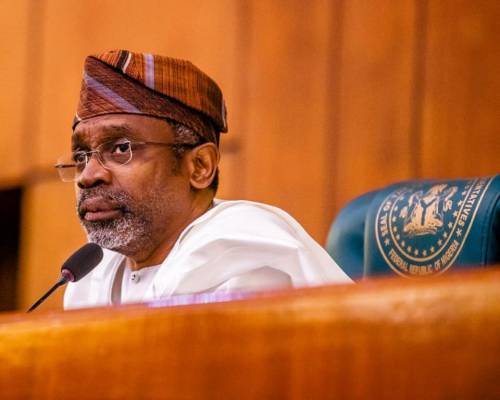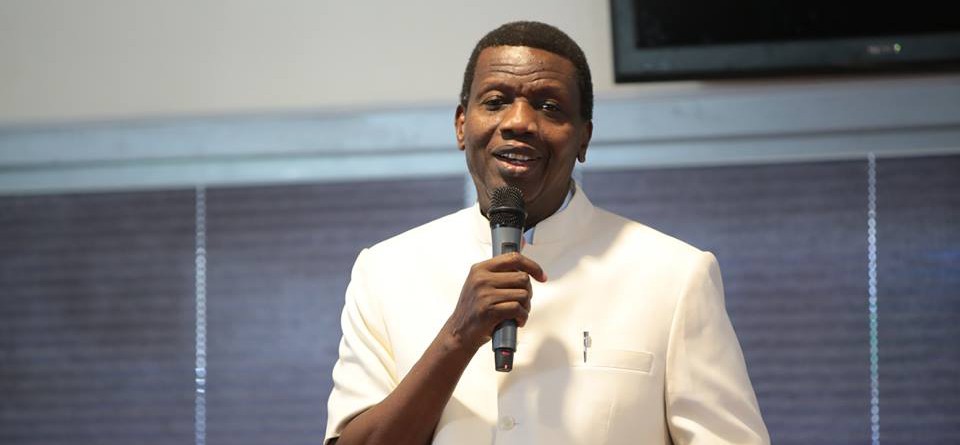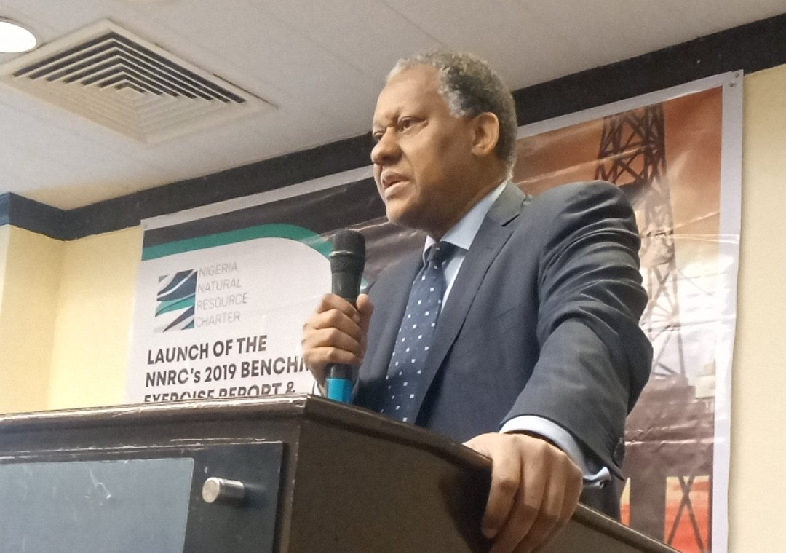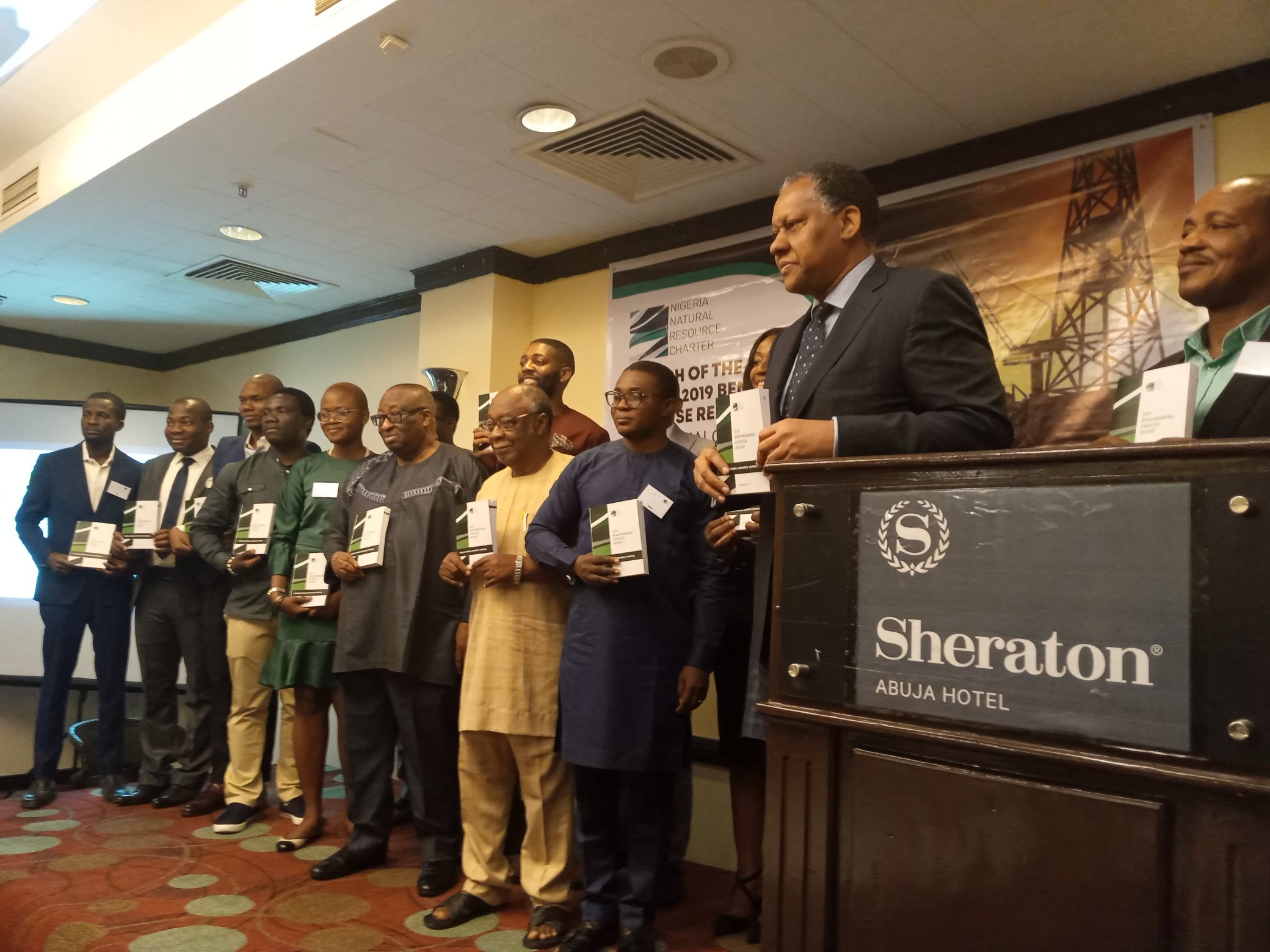Based on research, 13% derivation as contained in the Constitution of the Federal Republic of Nigeria has not translated into benefits for local communities in the Niger Delta, as there has been a key violation of the Global Memorandum of Understanding (GMoU).
TheNewsGuru.com (TNG) reports this was part of findings reached in the 2019 benchmarking exercise conducted by the Nigeria Natural Resource Charter (NNRC), the report of which was launched on Thursday.
Stakeholders who attended the launch of the 2019 Benchmarking Exercise Report (BER) produced by the NNRC lamented the persistent challenges facing the nation’s oil and gas industry, and especially the poor management of resources and lack of proper regulation.
The stakeholders at the event were in resonance that passage of the Petroleum Industry Bill (PIB) will go a long way in alleviating some of the challenges in the nation’s oil and gas industry.
Recall that Minister of State for Petroleum, Timipre Sylva recently announced that the National Assembly (NASS) will pass the PIB by the middle of this year. This will make the 7th Minister/Minister of State for Petroleum since the first version of the bill was placed before the NASS.
Given the close working relationship between the Executive and the NASS in this dispensation, the omens look good for a speedy of the bill, even as the Speaker of the House of Representatives has expressed dissatisfaction over delay in the passage.
Speaking at the launch of the 2019 BER by NNRC, Speaker Gbajabiamila assured that the House of Representatives will pass PIB in mid-2020, stressing that the efforts of the House must be replicated in the Senate to achieve the feat.
The Speaker, represented by the Deputy Chairman, House Committee on Niger Delta Affairs, Henry Nwawuba, said the bill would have been passed during the 8th Assembly, but for some disagreements between the legislature and the executive.
“The PIB is supposed to be a single piece of legislation, but to make it easier to pass through the rigours of the bill passage cycle we have broken it into four bills. So, we are doing the governance bill and we have started the administrative framework. Then, we will do the administration bill; we will take all of the other three at the same time.
“All of it had to do with the petroleum operation, how much powers does the minister have, the revenue sharing formula and all of that, so it is just a case of crossing the T’s and dotting the I’s. We have set the timeline to pass it by the middle of this year, so in the next four to five months we should get it passed if we meet our own timeline.
“Of course you know that it is a bicameral legislature, so whatever we do in the House of Reps must be replicated in the Senate and then we meet to concur, but we are nonetheless confident that we will meet the timeline,” he said.
Gbajabiamila said that the benefit of the PIB to Nigeria was like air to humans. He said that the bill would basically open up the entire industry to the required investment needed, so the country could benefit maximally.
He explained that with the global competition of energy, it was important that Nigeria had a good environment for investors to show interest in participating in her oil and gas industry.
“As it is today, Nigeria has no law; we have pieces of legislation, but very old. We do not have a PIB law like other climes. So, this is critical, because it is what is needed to harness all the potentials and articulate them in one place, to get the best.
“The power of lawmaking does not rest in the executive, nor in the hands of the President, so even if the President does not sign a bill, we still have our ways of getting it passed if we feel it is a critical piece of legislation.
“We are determined to pass this bill that is what is most important, we will work with the presidency and the executive but if push comes to shove we can veto it to pass the bill,” he said.
Also speaking at the launch of 2019 BER was former Minister of State, Petroleum Resources, and Chairman, Expert Advisory Panel of the NNRC, Odein Ajumogobia, who decried the impact of current global realities on the industry, especially geopolitics and the Coronavirus that had drastically affected oil outlook.
Ajumobobia said that the Charter was set up as a think-tank to try and bring about best practices in the oil and gas sector. According to him, major findings are that oil and gas in Nigeria are not being optimally managed in terms of the impact on the country and its people.
“If we have 200 million people in Nigeria and 87 to 90 million are in extreme poverty, I think that is a very poor reflection of the management of such a tremendous resource.
“When the industry began, it was focused on the export of crude oil but there is probably more gas in Nigeria than there is oil, but when the industry started, gas was regarded as a risk than a resource,’’ he said.
Ajumogobia said that for the last three decades, gas had proven to be a huge resource, so there was much more that Nigeria could have done to improve the transformation of the oil and gas industry, and the well-being of her people.
He said that NNRC first launched the benchmark in 2012 and had been releasing it biannually since then.
Ajumogobia added that the 2019 benchmark report was valuable information based on a lot of research in the industry that recommended best practice.
Also speaking, Director of the Department of Petroleum Resources (DPR), Sarki Auwalu, stated that there was a need for proper management of oil wealth to create maximum benefits for Nigerians.
He also canvassed pricing for gas, stressing the importance of encouraging domestic use of gas and ensuring that its price measures with what obtains internationally.
Cautioning the country against waste so that posterity would not judge resource managers, Auwalu pointed out that there was a need to focus investment in gas to transform the nation’s economy.
“We need policy, we need legislation in this direction to promote gas development. That will make sure that our gas is not flared. We need to commercialise our gas,” he added.
Meanwhile, the Program Coordinator of NNRC, Tengi George-Ikoli said the 2019 BER, which covers the findings of thorough examination of the petroleum resource wealth management from the beginning of 2018 to the end of 2019, is an exceptional policy document which is hoped will play an important role in influencing policy decisions in the Nigerian petroleum sector.
According to her, the report was painstakingly put together by a team of well accomplished research institutions and that is is undoubtedly the most incisive, in-depth and well detailed account of the developments in the petroleum sector in the period under review.
“It seeks to find answers to very important questions such as whether the government has clearly identified the country’s resource endowment, ownership and full impacts of extraction.
“It equally demands if the government has an inclusive and comprehensive national strategy for the management of resources as well as to what extent resource management should secure the greatest benefit for citizens through an inclusive and comprehensive national strategy, clear legal framework and competent institutions, among others.
“Most importantly it highlights the perennial issue of the neglect of oil producing communities and the delays as regards the transformation of the National Oil Company.
“It is our belief that actions taken to address the gaps identified by the NNRC’s 2019 BER will guide Nigeria towards effectively translating our petroleum resources under the ground to development above the ground.
“We believe the outcome of today’s deliberations will go a long way in aiding the government in achieving this, and accountability actors to focus their advocacy to ensure that we maximize the benefits; revenue or opportunities afforded to Nigeria by her resource endowments,” she stated.
TNG reports 2019 BER is the fourth in the series of benchmarking exercise reports produced by the NNRC; carried out to provide an assessment of governance of Nigeria’s petroleum wealth.
The first three exercises were conducted and published in 2012, 2014 and 2017 respectively. It uses the Natural Resource Charter (NRC) framework, developed by a diverse set of internationally renowned experts on natural resource management to conduct the assessments.
This latest edition analyses the governance of petroleum wealth in Nigeria and identifies crucial changes that have taken place in the sector since the last benchmarking exercise was conducted.



